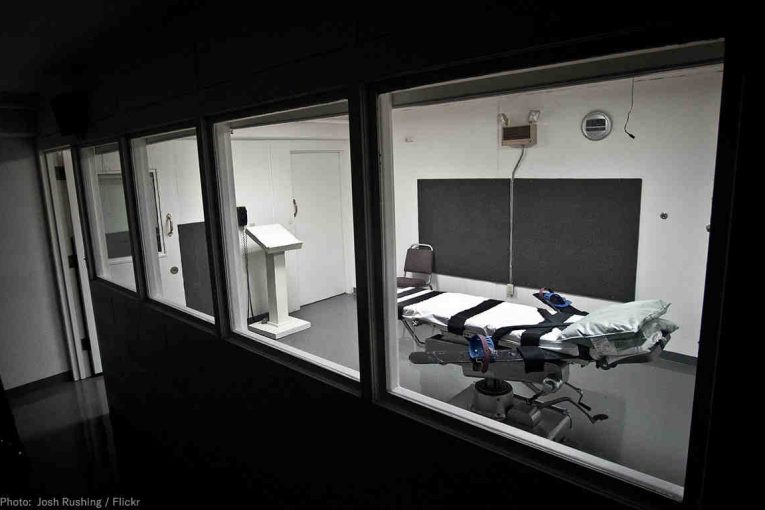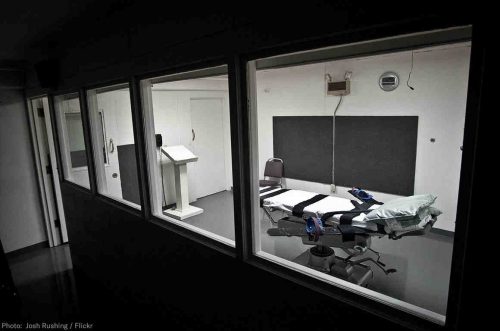

By Julie McCaffrey
NEW ORLEANS, LA — Significantly more mistakes were made during the execution of Black prisoners sentenced to the death penalty than those of other races, reports NPR, quoting a report by researchers for the nonprofit Reprieve.
Reprieve estimates half of all botched lethal injections were of Black people, despite Black people making up only a third of those executed.
According to NPR, lethal injections, which can consist of anywhere from one to four injections of different drugs, is the most commonly used method of execution, while also being the one with the most recorded mistakes.
Maya Foa, executive director of Reprieve, told NPR, “The death penalty in its application in the United States is racist, and we cannot continue to do this.”
Foa remarked, “There are botched executions, many of them, regardless of the drug, regardless of the cocktail. Continuing to tinker with the machinery of death is not making this better,” reported NPR.
Reprieve found 73 lethal injections since 1982 were botched, and the pattern of botched injections were the worst in Arkansas, Oklahoma and Georgia, writes NPR.
NPR added in the three states named, “three quarters or more of the botched lethal injection executions were of Black people, though they only accounted for a third or less of executions in those states.”
Foa continues, “The analysis shows not only are we botching these executions and causing people torture more often than with many other methods, but we are doing that to Black prisoners far, far more frequently than we are to white prisoners.”
The study does not conclude why more botched injunctions occur when executing Black prisoners, but Foa believes clues can be found in the high mortality rates of Black Americans and the fact that they receive poorer medical treatment, states NPR.
Professor of health law at Ohio State University, Ruqaiijah Yearby, stated to NPR racism has long existed in healthcare, citing racist tropes, such as the notion Black people have a higher pain tolerance, limit access to equitable healthcare. Yearby said this may lead to inequities in the administration of lethal injections.
NPR wrote Yeraby states, “Black people don’t have thicker skin, we don’t have bigger bones. But if you believe that, then you’re going to treat somebody differently than if you’re going to do it to a white person.”
Another professor, Dr. Scott Bowman, who studies race and law enforcement at Texas State University, told NPR “he would expect discrimination to show up in the lethal injection executions in subtle ways.”
Dr. Bowman admits it would be difficult to identify discriminatory behaviors in the death chamber, writes NPR, because they are both subtle and the justice system lacks transparency for such mistakes.
NPR reports that while some people who aided in executions did not notice a difference in the treatment of Black people in the death chamber, Jeff Hood, a spiritual advisor, said he did notice differences in their treatment.
“I can definitely tell you that the restraints that I have seen on Black folk have been unquestionably tighter than the restraints that I have seen on white folk,” Hood told NPR.
He also added the only time he heard workers discussing whether a prisoner would resist was in cases of people of color, and he believes the prejudice and fear the correctional officers’ hold toward Black people is related to this.
Hood said, “If your assumption is that the person who is condemned is going to resist, then you are going to take much more liberties with the body than if you believe that the person was going to be perfectly peaceful.
“And when you begin to take liberties with someone’s body, you leave protocol and you leave best practices. When you leave protocol and you leave best practices, of course you are going to have a botched execution.”
Racial discrimination has been evident throughout the process of deciding upon and enforcing the death penalty, reports NPR, including sentencing, appeals, and its actual administration. The Death Penalty Information Center, a nonprofit organization, reported in 2020 that people of color were overrepresented on death row.
According to NPR, Reprieve is recommending a momentary pause in lethal injections at the state and federal levels, and they urge governors to investigate and repeal secrecy laws that prevented previous oversight.




